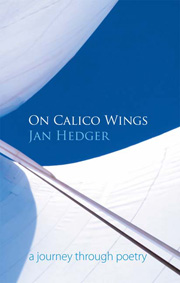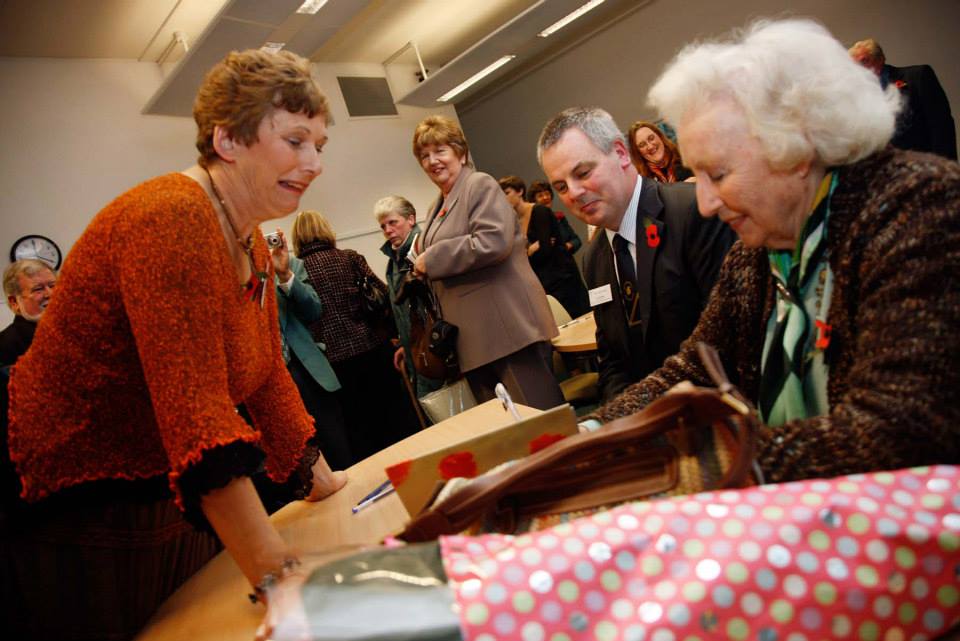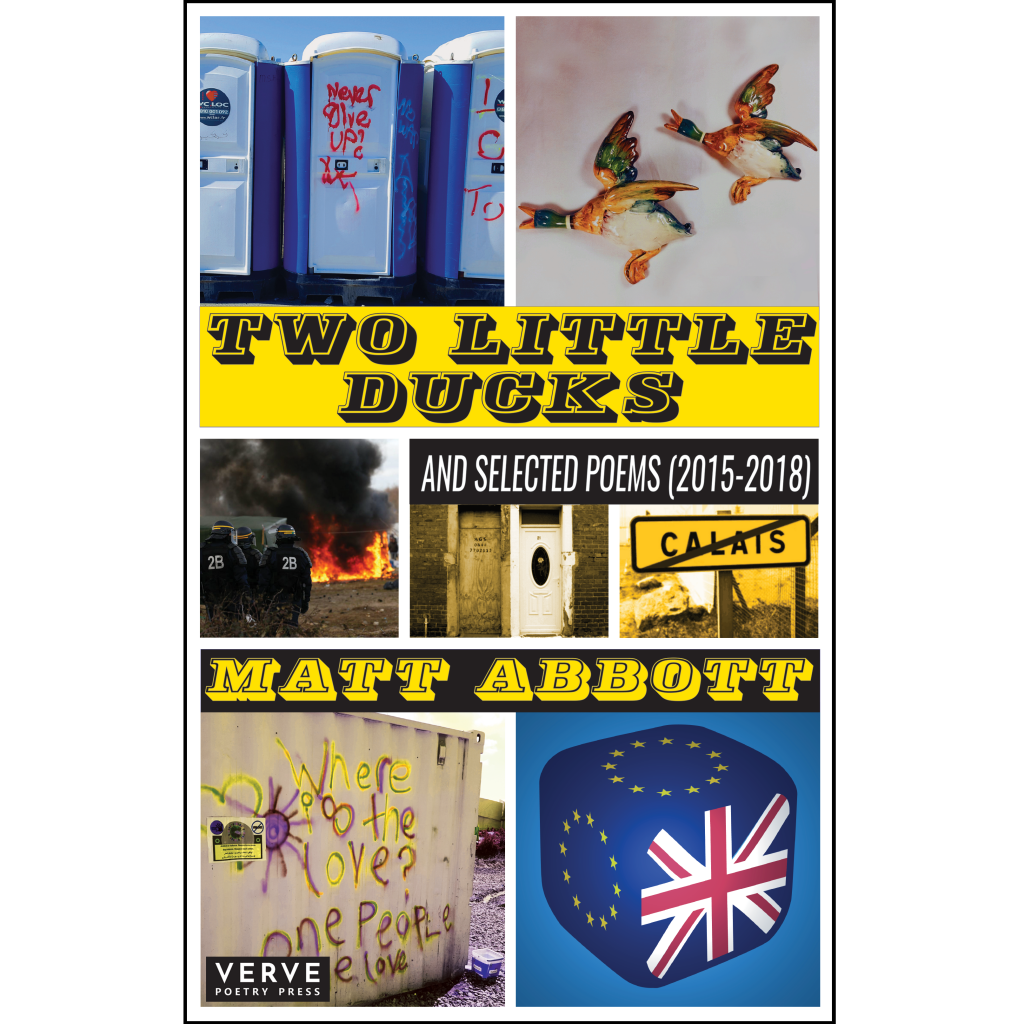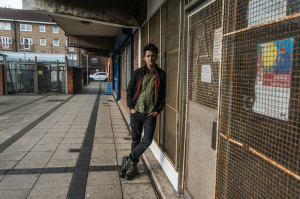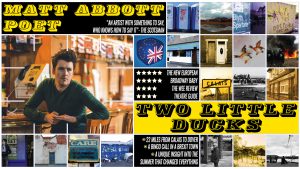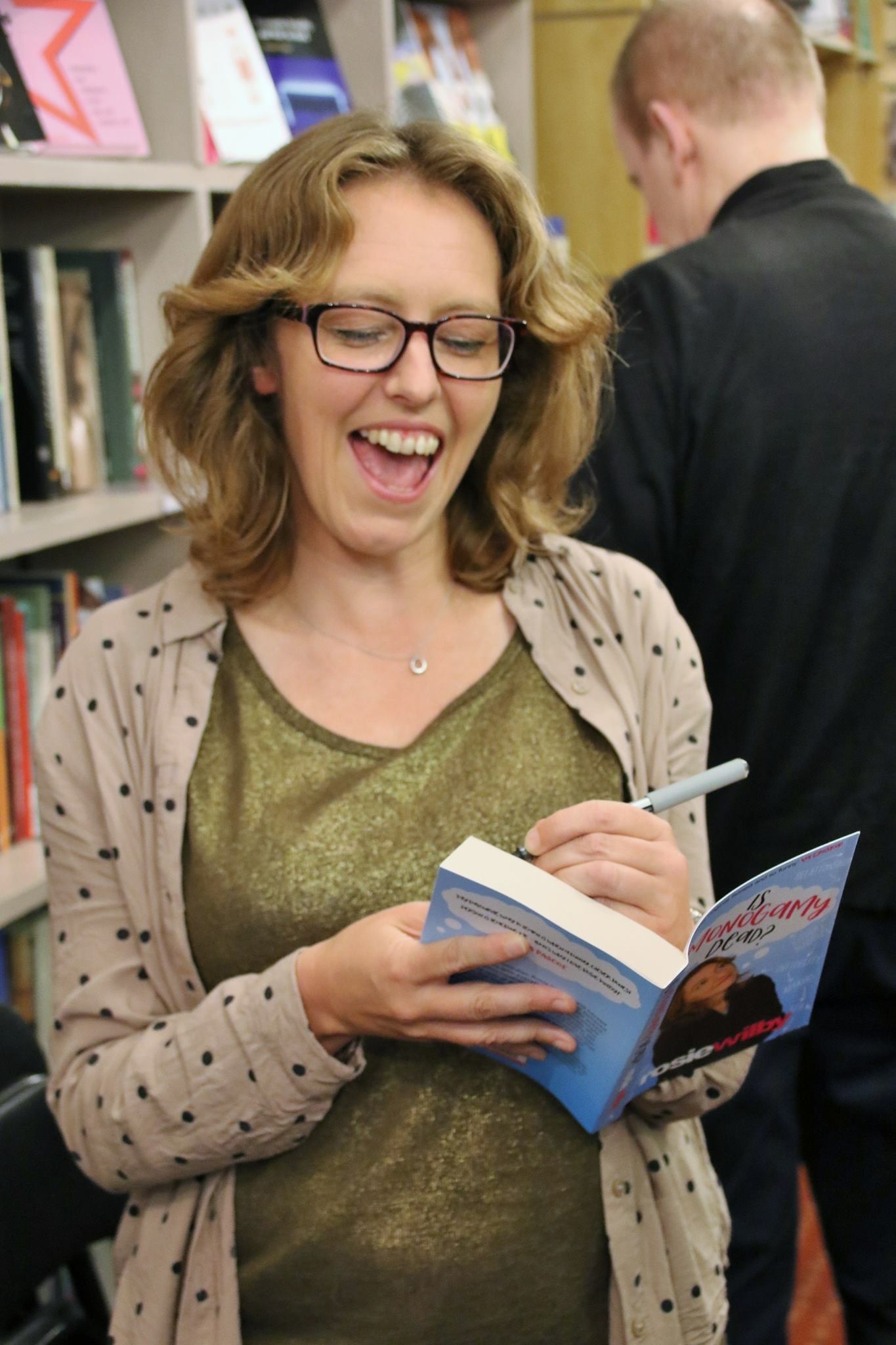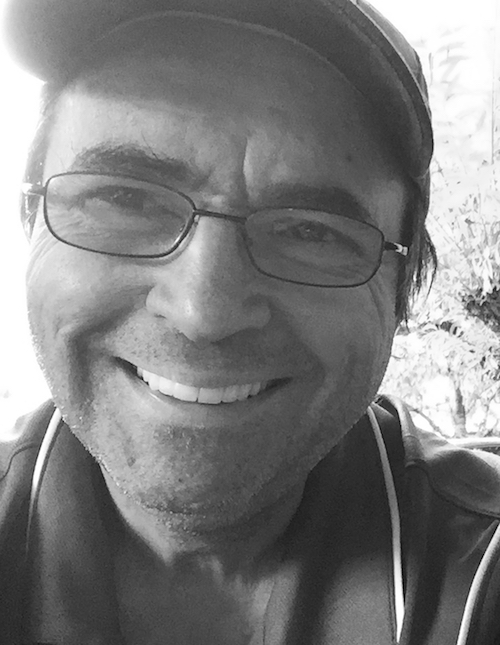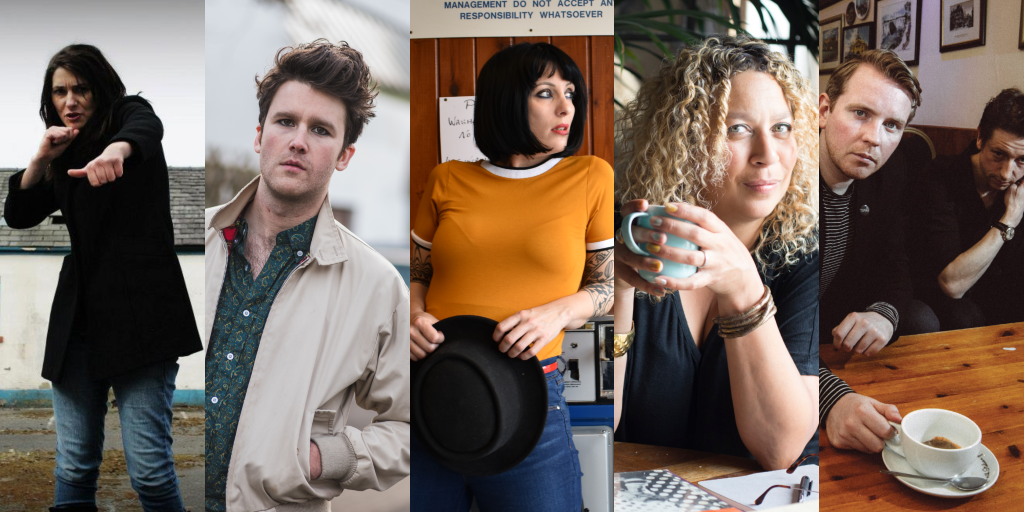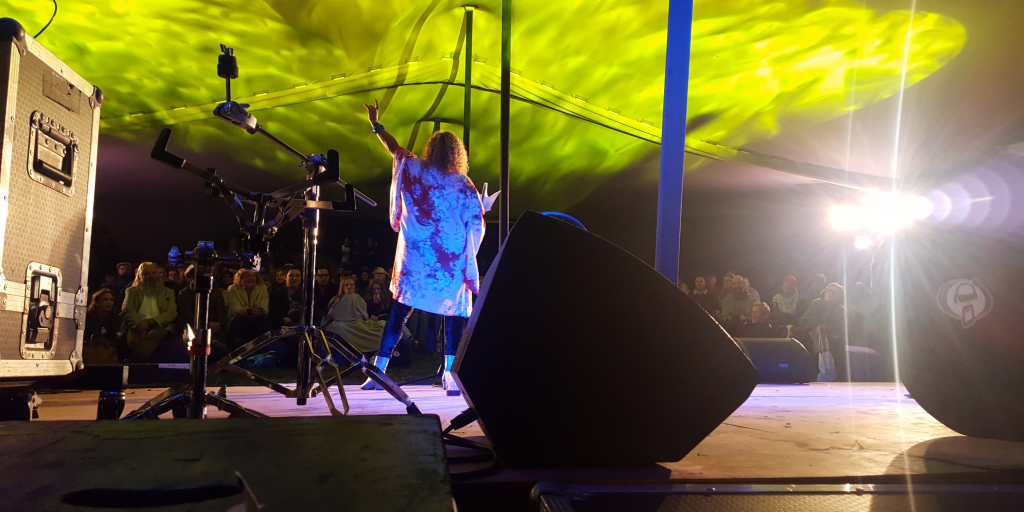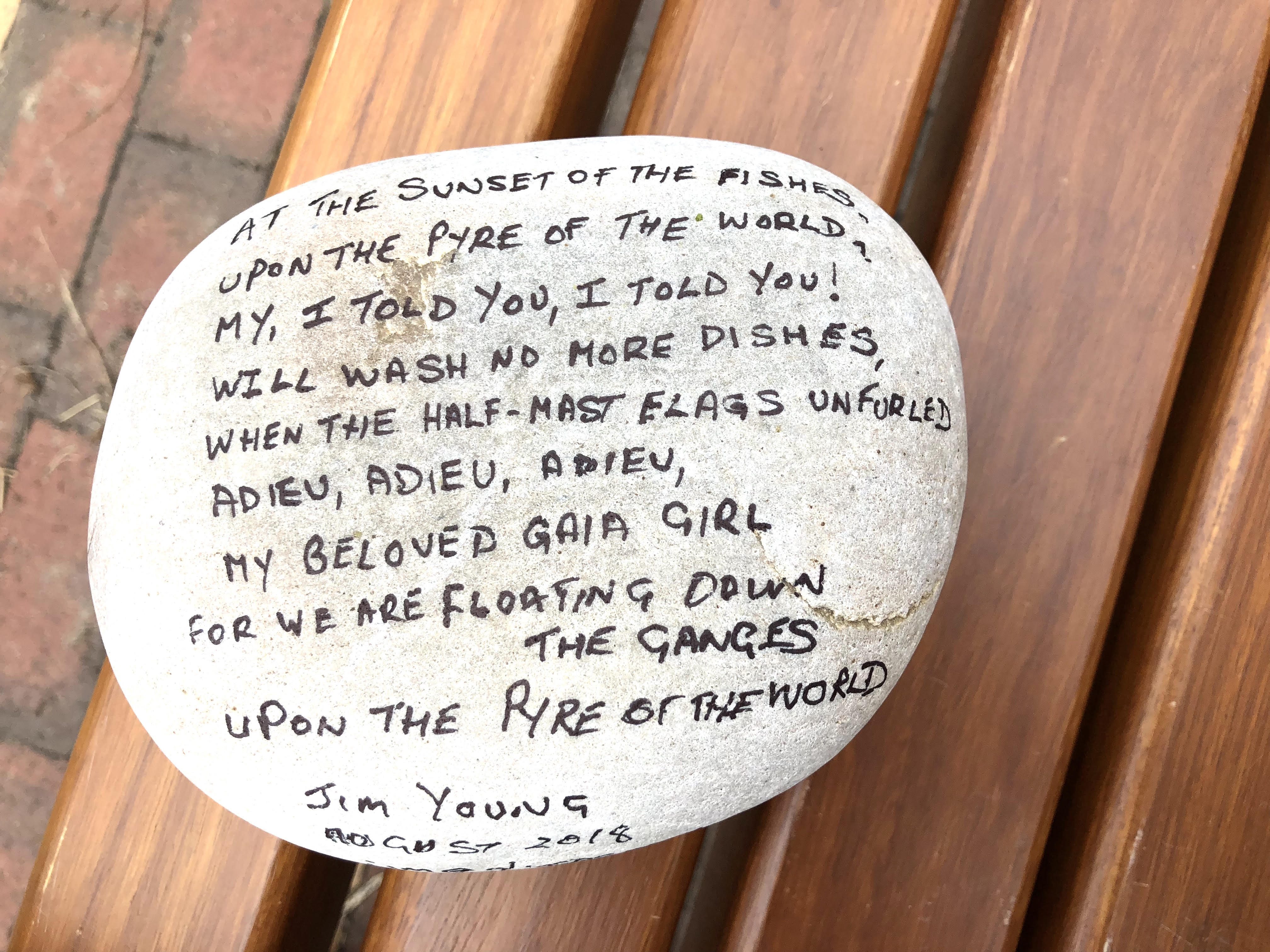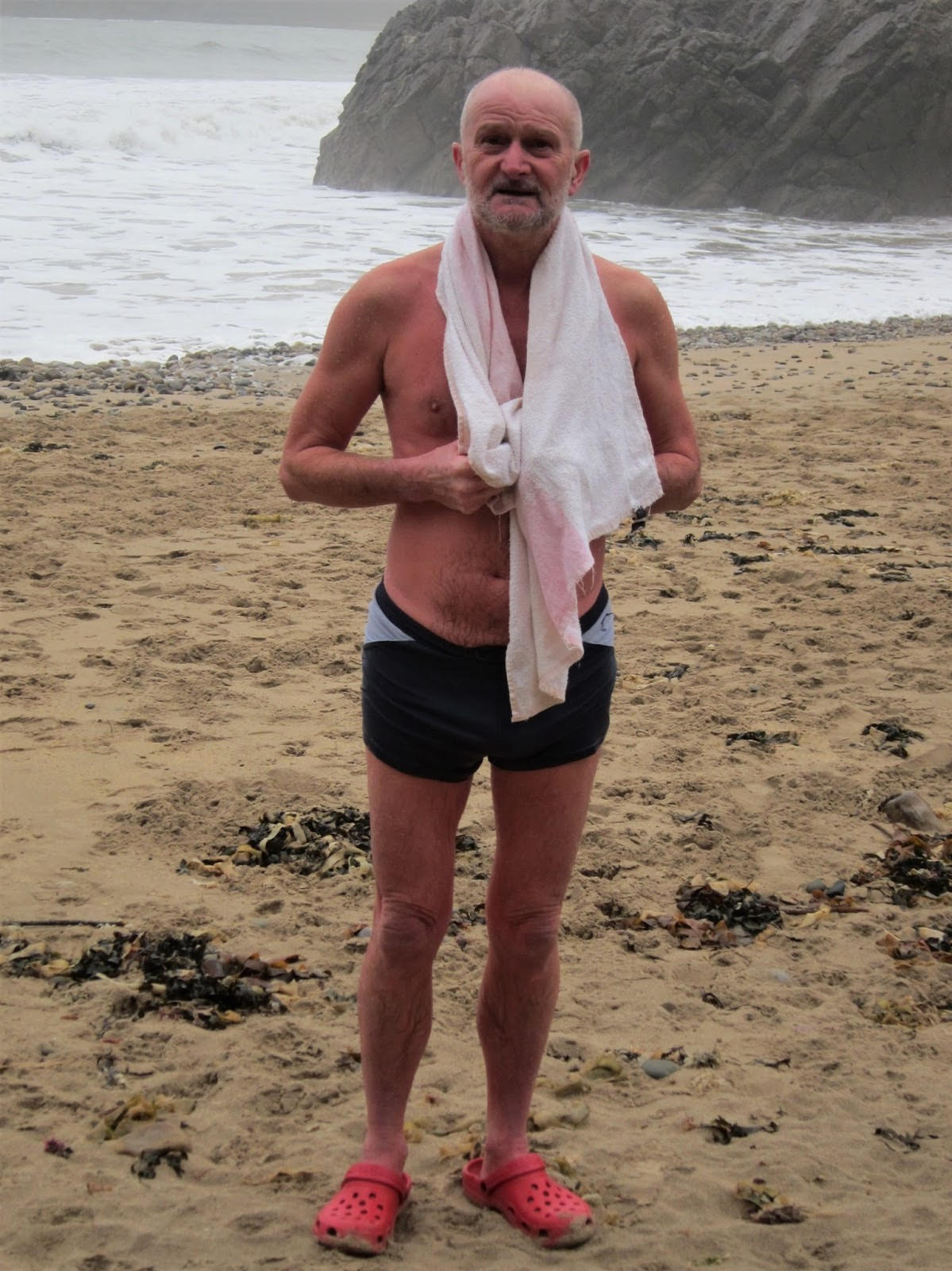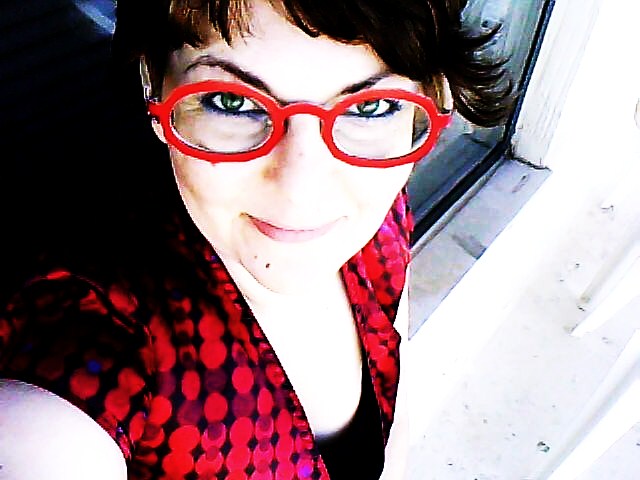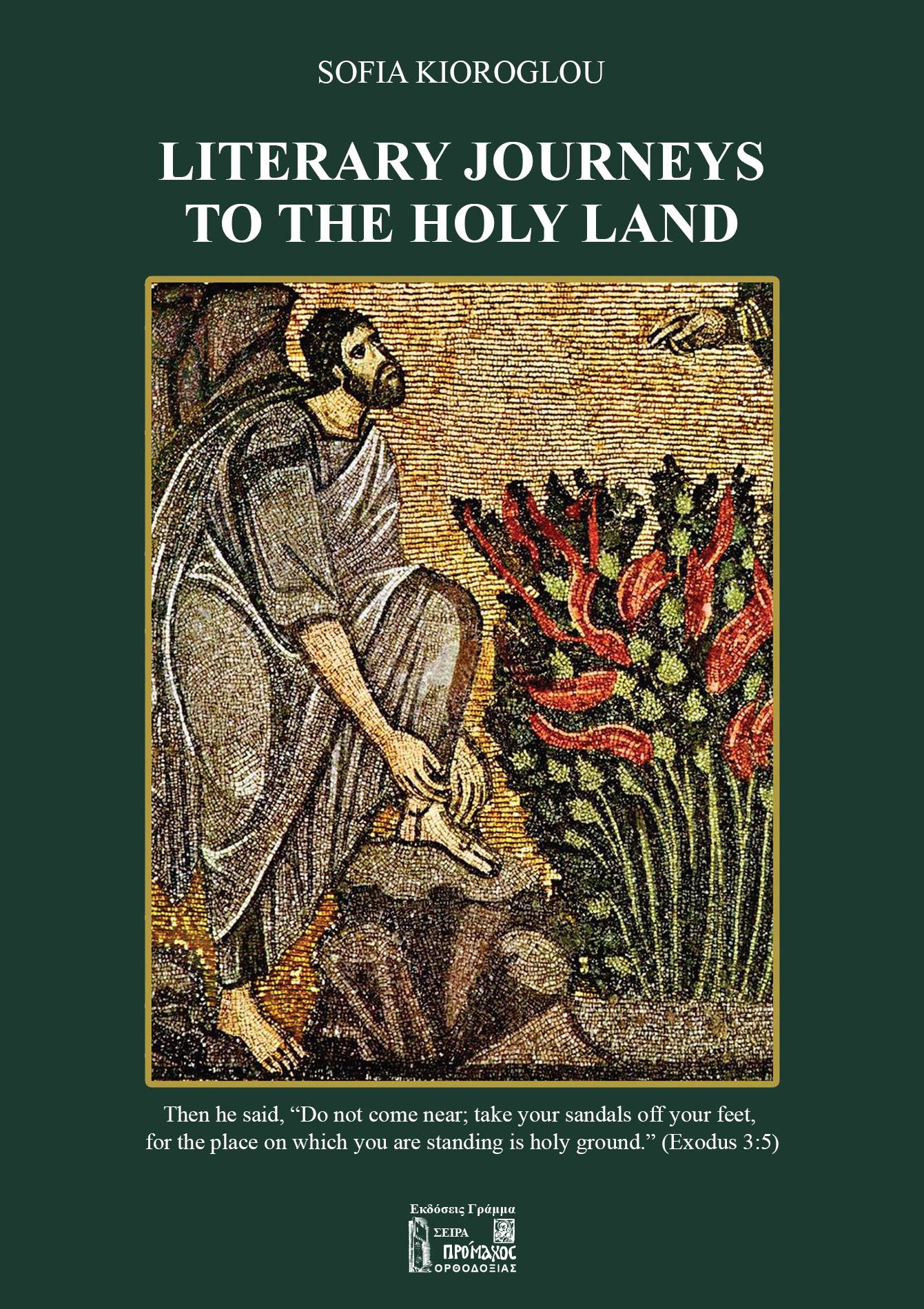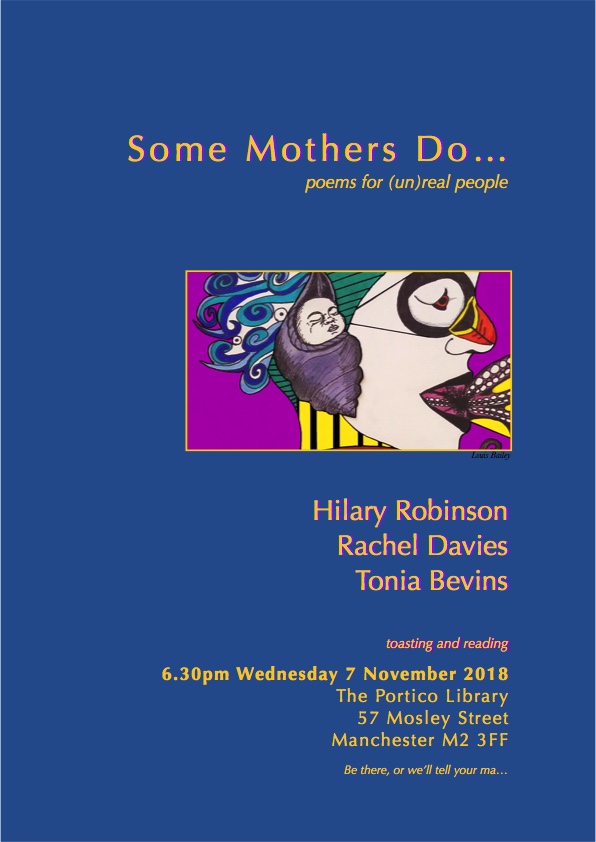
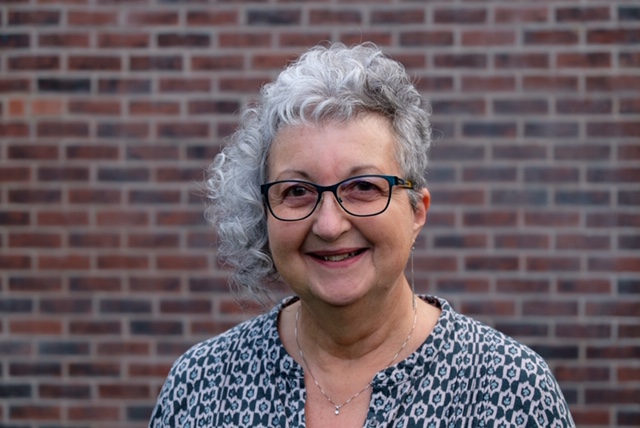
Hilary Robinson
(Photo Credit: Ben Robinson)
Some Mother’s Do…..poems for (un) real people is on Weds 7th November 2018 @ 18:30 at the Portico Library event in Manchester. How wonderful! Can you tell us about it?
Hilary Robinson: We felt the Portico gave us the gravitas our poetry deserves! No, seriously, Rebecca Bilkau, our editor, is a Portico member so could hire the beautiful space at a favourable rate. It’s fairly central, near to tram stops, and therefore convenient for all our poet friends to reach. Doors open at 18:30 and there will be a glass of wine and nibbles — what’s not to like?
Rachel Davies and I were lucky enough to be approached by Rebecca Bilkau who was thinking about launching the first DragonSpawn publication which she was calling a ‘step up to a pamphlet’. We didn’t need any time to think it over — we were both in. For the third poet, Rebecca invited Cheshire poet, Tonia Bevins, who was delighted that her work was to be published. Tragically, Tonia died suddenly in the summer before Rachel and I managed to meet her, but we all thought her contribution to the book should go ahead. Tonia’s friends, Angela Topping and Angi Holden, have been acting on her behalf and they will be reading her poems at the launch in November and we feel this will be a fitting tribute to Tonia.
We have both enjoyed the editing process which has been mostly achieved by email as Rebecca lives for most of the year in Germany. We are thrilled that our ‘Dragon Mother’ will be with us for the Manchester launch.
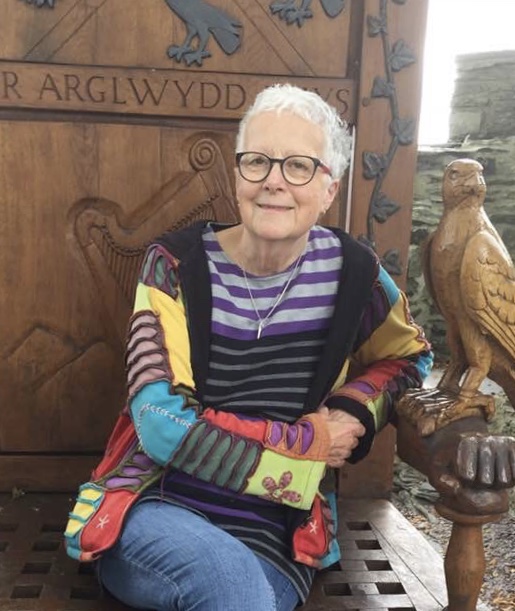
Rachel Davies
(Photo Credit: Bill Hibbert)
How long have you been writing poetry? Tell us about your studies with the MMU and your Masters in Creative Writing.
Rachel Davies: I’ve always enjoyed poetry and wrote it, like most people, at times of emotional stress. I loved writing poetry with the children at school when I was a primary teacher/headteacher and often used poetry in my school assemblies to illustrate points. But I didn’t really get into it seriously until I retired from teaching in 2003. I completed a BA in Literature with the OU—I had Bachelor and Masters professional degrees but always wished I’d studied literature at college. I took the opportunity at the end of my career; then applied for and was given a place on the MA in Creative Writing at MMU where I worked with a wonderful team of poets: Jeffrey Wainright, Simon Armitage, Jean Sprackland, Michael Symmons Roberts and, of course, Carol Ann Duffy. I was involved in collaborations with RNCM during my MA which has led to my poetry twice being performed with music at the Bridgewater Hall; I graduated MA (Dist) in 2010; but like many university courses I’ve done in my life, the end is like a cut umbilicus. I was a late starter in higher education, and I have never learned how to stop. So in 2015 I enrolled for a PhD at MMU, researching the mother-daughter relationship. This is creative/critical work; so as well as writing a substantial body of work of my own—several of which are being published in Some Mothers Do… I have also studied poets writing on the subject, most notably Pascale Petit and Selima Hill. I will complete and submit in May next year. I have had several poems published in journals and anthologies, so I am really excited and pleased to be one of the first ‘DragonSpawn’ poets.
Hilary: I’ve always loved poetry. My Dad used to read poems to me when I was little and encouraged me to learn poems by heart. He and my Mum were also very musical and I spent long hours absorbing the words of the songs they’d sing and perform. It’s no surprise then, to be told that my writing has ‘musicality’. I loved to teach poetry writing to primary children and would always have lots of poetry books on my desk to read from in the odd moments waiting for the dinner bell or home time, but I didn’t start to write poetry until 10 years ago when I was recovering from a mental breakdown that had led to me temporarily giving up the teaching job I loved. As part of my recovery I took myself off to the local library where there was a monthly writing group. I had intended to write short stories for my grandchildren but found increasingly that poems came out of my pen. Rachel took me under her wing and off to the Poetry Society Stanza group she runs in Stalybridge. I was hooked, sucked in to the amazing world of poetry that I never knew existed. A turning point for me was joining Jo Bell’s online ’52’ group where she posted a prompt a week for the whole of 2014. I wrote at least one poem every single week. The support of this group encouraged me to apply to Manchester Metropolitan University to do the MA in Creative Writing. My tutors were Michael Symmons Roberts, Adam O’Riordan, Jean Sprackland, Nikolai Duffy and Carol Ann Duffy — how lucky are we to have such talent at Manchester Writing School? I graduated MA (Distinction) earlier this year. During the MA I enjoyed various opportunities such as collaborations with composers from RNCM, having two poems published in MMU’s ‘A New Manchester Alphabet’ anthology and reading alongside Carol Ann Duffy and Liz Lockheed at the Royal Exchange.
Can you share with us a couple of your poems and walk us through the inspiration behind it?
Rachel: I’m going to share a couple of poems from Some Mothers Do…‘A Three Toed Sloth’ is one of my ‘Alternative Mother’ poems from the PhD portfolio. I have been thinking about ‘the mirror of the other’ through which we come to know ourselves: how we know who we are, and how we should behave in social situations, through the reaction of the ‘other’s’ gaze. The first and most influential ‘other’ is the mother, or primary care-giver when we are growing up. Simplistically, we become who we are through our interactions with others in our various social situations. Then I got to thinking what sort of a ‘me’ would I have been in social interaction with different ‘others’: for instance other women—and men—I knew, or heroines from literature or history. So I have written ‘alternative mother poems’ about Pope Joan and Boudicca; about Alice (in Wonderland) and Alysoun, Wife of Bath. It struck me that I could extend this as a means of getting my own back—against that woman who upset me on the tram, or against people who have bullied my children. The poem I’m reproducing here began life at a workshop in Nantwich last year (2017) run by Mark Pajak. I modified it to fit the ‘alternative mother’ brief: what kind of a self would I be if a sloth was my mirror.
Alternative Mother #7
A three-toed sloth
see yourself as someone who relinquishes
digits to evolution then patents
what you save in your own slow show
see yourself as acrobat
so your ceiling rose is hearth rug
the laminate floor your roof
see yourself as worshipper of inertia
so downtime is your vocation
daydreaming your life’s career
see yourself as passive philosopher
examining the energy of predator
and arriving at the ergo of leaves
see yourself as someone who could be
a human sin but can’t even be arsed
to crack a smile at the irony of it.
My second poem, also in Some Mothers Do…began life in 2007. My partner and I went to Australia to follow the winter tour of One Day International cricket. During our stay we drove the Great Ocean Road from Melbourne to Adelaide, a journey of three days. On the second night of the journey, we stayed in a lovely B&B called ‘Ann’s Place’ in a small village called Robe. Ann was a Dame Edna look-alike, but a very kind and generous hostess. After settling in, her husband suggested we should go into the garden after dark to look at McNaught’s comet, which was visible in the southern night sky at the time: there was barely any light pollution in Robe. So we went out, sat on the garden wall looking out over the sea; and we saw nothing! I only expected it to be a light in the sky or something. Anyway, as we were about to give it up as a bad job and go back indoors, there it was, behind us all the time. It was spectacular, like a child’s drawing of a comet; like being in the Bayeux Tapestry with that beautifully embroidered Hallé’s comet. The tail trailed behind it for ever, and the comet looked close enough to reach up and touch. I fell in love that night. I started the MA in the September following, and I wrote a long and rambling poem about seeing the comet, which only appears every 40,000 years, and how privileged I felt in being there to see it. In the workshop discussion, Simon Armitage felt I was trying to write a love poem and suggested I tighten it up a bit. Now, I had a down on men at the time, and there was no way I was in the frame of mind to write a love poem; so my ‘Love Letter to McNaught’ is a ‘not-a-love-poem’. It’s very tongue in cheek about the break-up of a relationship, the symptoms of which often only seem significant after the event. McNaught, in comparison with that kind of duplicity, is a bit of a perfect lover because he didn’t stick around long enough to break my heart.
Love Letter to McNaught
McNaught’s Comet
Southern Australia January 2007
You didn’t take me out or wine and dine me
at Don Gio’s, expect me to laugh at your jokes,
or touch my fingers across the table, or buy me
flowers like ordinary blokes.
We didn’t enjoy a first blistering kiss,
or share a universe-shifting fuck
that makes you wish it could be like this
for ever, knowing you never have that kind of luck.
We didn’t run barefoot on winter beaches
or play hide and seek among autumn trees
or picnic on chicken and soft summer peaches
or laugh at ourselves doing any of these.
We didn’t get married or live as a couple,
and share a life or a name or kids;
so your twice-worn socks couldn’t burst my bubble,
or your morning farts or your pants with skids.
You never once, in post-coital passion
whispered a strange woman’s name in my ear
or came home drenched in your lover’s Poison
or shielded your phone so I couldn’t hear.
You didn’t promise roses and bring me thistles
or when I soared try to tie me to land.
McNaught, you were never a man to commit to—
just a beautifully cosmic one night stand.
Hilary: My two poems are from Some Mothers Do…The first was written in response to Jo Bell’s ‘52’ prompt which was to write about something that almost happened, or could have happened. I remembered a time shortly after the premature birth of my son when I was feeling depressed. We talked about having the ‘baby blues’ back then but now it’s recognised as post-natal depression. It’s horrid and I was fortunate that I wasn’t affected badly, or for very long, but on the morning I refer to in the poem a fleeting thought did cross my mind before I took a deep breath, waited until the road was clear and crossed over to the greengrocer’s shop. When I wrote the poem it truly was ‘the first time I’d spoken about that time’ and I read it to my family before I posted it online. It is the first of my poems to have been published.
On Bridge Street
I’ll tell you this —
in hospital I’d turned into
a lioness, fought to get him
back from Special Care.
My tiny boy and I
came home.
I sank.
Back then the ‘Baby Blues’
were cover for the hopeless days
the waking nights
the apathy, the dried-up milk
the guilt.
I travelled there.
And that’s how I found myself
at pavement’s edge considering
lorries, buses on that main road.
I was calm and never thought
of anybody else.
That day on Bridge Street
I was wearing my blue
raincoat so no-one saw
my baby boy
strapped to my chest.
I haven’t spoken of that time
until today.
My second poem is quite a contrast! I wrote it in response to a remark made by Boris Johnson during the 2012 Olympic Games and it imagines a mature couple reflecting on their sex life. It was great fun to write!
Sex as an Olympic Sport
It’s like synchronised diving —
there are different classifications
so you’re never too far out of your depth.
Couples who’ve trained for it
get to relax in the hot tub after it’s over
then mop themselves down with a little shammy.
Those ice dancers spin to an appropriate tempo,
try to last for just 4-minutes
and aim for a set of perfect 6s.
They channel Torvill and Dean,
(their costumes less revealing than they first appear)
and keep each other no more than two arm-lengths apart,
whereas we, our heady days behind us,
are all about the relay team that drops the baton,
the shot putter who oversteps the mark.
We’ve lost our confidence on a four-inch beam
and do not glisten like wet otters**
who play beach volleyball.
We are not clean. I’m all HRT
and you’re all V’d when we can be bothered.
We’re a failed drugs test. No medals this time around.
**Boris Johnson on the beach volleyball:
“There are semi-naked women playing beach volleyball in the middle of the Horse Guards Parade immortalised by Canaletto. They are glistening like wet otters and the water is splashing off the brims of the spectators’ sou’westers.”
Who inspires you?
Carol Ann Duffy who was our workshop tutor on the MA course. She is so generous to students with her time and advice, but she takes no prisoners when it comes to what makes a good poem! Selima Hill is one of Rachel’s poetry heroes. Ann & Peter Sansom who run the brilliant Poetry Business in Sheffield. Simon Armitage, who taught Rachel at MMU — we bumped into him once when we were in St Ives on a writing residential run by Kim Moore who works tirelessly for poetry. Liz Berry who writes with such tenderness and authenticity, Alice Oswald, Pascale Petit, Sharon Olds, Fiona Benson…we could go on and on. Rachel is on the committee of Poets and Players in Manchester. They offer excellent workshops with the fantastic poets who read at the Whitworth Art Gallery. We also admire emerging poets like our friends Linda Goulden and Mark Pajak. We both have so many poetry books and pamphlets that we need more shelves!
What are you reading at the moment?
Rachel: Simone de Beauvoir’s Memoirs of a Dutiful Daughter which isn’t poetry, but written in very poetic language.
Hilary: Carol Ann Duffy’s new collection, Sincerity; The Forward Book of Poetry 2019; Liz Berry’s The Republic of Motherhood and I have just read Maggie O’Farrell’s memoir, I am, I am, I am.
Have you any advice for budding poets?
Read, read, read poetry! Go to workshops, talk about poetry, share your poetry, go to readings, listen to poetry on the radio, watch it on YouTube. Join a Poetry Society Stanza group — you don’t have to be a Poetry Society member to join a Stanza, and you can find your nearest group on their website. Seek out the community of poets because, on the whole, they are wonderful people whose help and advice will be invaluable. And don’t forget to read lots of poetry!
What’s next for you? What plans have you got?
Rachel: Finish my PhD! I’m almost at the end now. Next, I’d like to publish a pamphlet or collection of my own. I’d also love to have poem published in the North. I’ve had reviews in there, but not a poem.
Hilary: Resist the urge to start a PhD! Like Rachel, my immediate ambition is to have a pamphlet or collection published.
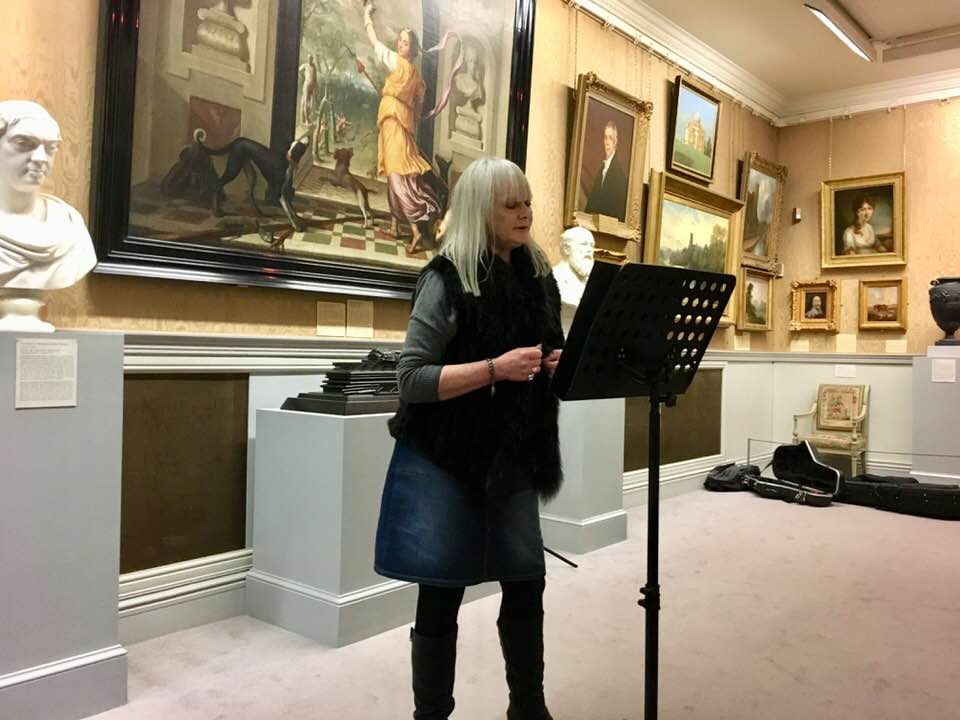
In Memoriam
Tonia Bevins (1953-2018)
(Photo credit: Suzanne Iuppa)
Angela Topping: Tonia was born in Blackpool, Lancashire. She was educated at Cheltenham Ladies College where the poet U. A. Fanthorpe was her English teacher. She graduated from the University of Manchester with a degree in English & American Literature. She lived in Cheshire since her mid-twenties. After working for the BBC for many years, where she met her late husband Barry Bevins, a BBC producer, she became an ESOL teacher in Manchester and Liverpool. She was very involved in the local poetry scene, being a member of the Poetry Society Stanza, Blaze, and was a founder member of Vale Royal Writers Group – for whom Tonia organised Wordfests at The Blue Cap, Sandiway. She was a regular performer at Dead Good Poets Society’s open mic nights in Liverpool. Some of her poems and pieces of flash fiction have appeared in magazines and anthologies. Tonia was very excited about her first publication of a whole set of poems, but unfortunately did not live to see it completed. Her consolations in life, apart from her passion for poetry, were her cats and her garden. She is greatly missed by all who knew her, well known for her modesty, generosity and reserved nature, her kindness and quiet grace. Hopefully her poems will live on to enchant us.
Tonia was always keen to improve her poetry and went to evening classes at Sir John Deane’s college, later becoming a regular attender at Gladys Mary Coles courses in at Liverpool John Moore’s. Gladys Mary did a lot to build up her confidence.
She admired Paul Farley’s work in particular. She also had a fondness for Helen Tookey’s poetry. Brian Wake is another Liverpool poet whose work she found pleasure in.
She would have told budding poets to immerse themselves in poetry and to read as much a possible, as she did herself. She was a regular attender at poetry readings, and believed in the power of hearing poetry as well as reading it.
I would have loved to have seen her bring out a full collection, which this showcase would have led to, but sadly she is no longer with us to make those plans.
Before I Remembered
On the third day he began his search,
not hunting out but seeking, pacing through the house,
howling like something cast out or dispossessed;
then a purposeful scouring of dark corners,
the spaces behind closed curtains,
clawing open cupboard doors,
scratching at boxes stowed under the stairs,
staring up at the high trap to the loft,
sniffing at the air for the very scent of you.
And I, forgetting,
laid your place at table, cooked too much food
while making a mental note to tell you
about this and that – trivial things.
He wouldn’t sleep on my shoulder.
For weeks there was no consoling him.
But with time your Vladimir became mine
in the changed order of the world.
Sometimes I open your wardrobe door,
free the hostage smells of leather and cologne,
conjure you there in the silent room,
the ridges in nails, arch of ribcage, set of jaw.
For a moment, I can hear
the singular timbre and tone of you,
trace every hair, fleck and freckle of you,
touch the flesh, blood and bones of you.
Angela Topping:
‘Before I Remembered’, Tonia took it very hard when her husband, Barry, died. This poem is a very personal and moving elegy for him.
Angi Holden:
In ‘Before I Remembered’ Tonia makes reference to Vladimir, Barry’s cat who ‘with time’ became her cat. Tonia’s cats were very important to her (another makes an appearance in the skin-chilling Miss Thomas!) and the retiring collection at her funeral was in aid of Cats Protection. As Angela says, it’s a loving elegy which uses the cat’s inability to process his master’s departure to frame her own loss. I love it for the sensory detail which recreates Barry’s presence – the smell and feel of him, his touch, the timbre and tone of his voice – and the way it captures that millisecond when she forgot the enormity of his absence.
At Bamburgh
It’s late September, a full month before we used to go
the two of us, without my father, to spend half-term
huddled among the dunes, shivering in the blast
that roars off the Urals, barrells across the North Sea.
We can’t come all this way and have you not swim.
Don’t be such a baby. Get in!
I’d bob up and and down in shock then run back,
blue-fleshed, numb, gasping into the embrace of the towel
held up in her outstretched arms, gulp hot, sweet tea from the flask.
None of this has made me a more resolute person.
I find myself here again but high above the shore
this wild, ragged afternoon – the tiny, determined walkers far below.
Tankers, container vessels slide past my friend’s window.
Inner Farne hangs on the horizon, in and out of sheeting rain.
When I look out my nearest neighbours are in Denmark
he says. But I think of the grey seals and seabirds, remember
my mother, lamed for life yet game to clamber
down the iron rungs set into Seahouses’ harbour wall,
her faith in our skipper’s grasp as she leapt the gap
to the small boat rising and falling on the swell.
Angela:
I know her mother had had polio when she was younger, hence talking about her hardiness in climbing down the iron ladder. There are two time frames in the poem: Tonia is visiting the area with a friend, and remembers back to when her mother would take her there for an autumn holiday, and her mother making her swim in the sea, even though it was cold.
Angi:
Tonia’s mother was a doctor (GP, I think) hence the refs to her graduation in her poem O’Connell St and the neighbour calling for help with his child’s delivery in Blood Moon. No mean achievement to qualify, especially given her disability – I imagine she was a strong woman. I think Tonia wanted to capture that strength of character in Bamburgh, her mother’s determination not to be limited by being ‘lamed for life’ and to step out despite the ‘rise and swell’ of the future.
Hilary Robinson on Twitter
Rachel Davies on Twitter
Angela Topping on Twitter
Angi Holden on Twitter


